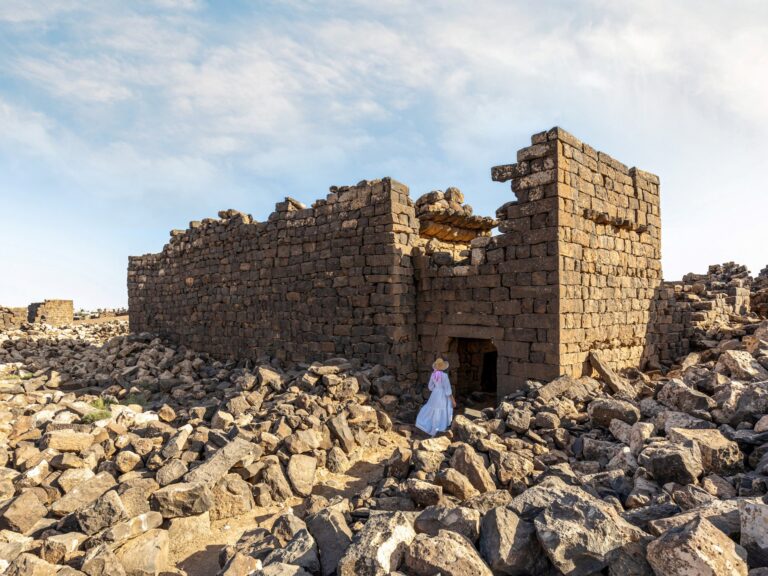The site’s oldest structures date back to the 1st century AD, when it was part of the Nabataean Kingdom.
Jordan’s village of Umm al-Jimal has been added to UNESCO’s World Heritage list, with the country’s minister of tourism and antiquities hailed it as a “great achievement.”
The United Nations Educational, Scientific and Cultural Organization (UNESCO), which is hosting a meeting of the World Heritage Committee in New Delhi, India, said on Friday that the oldest structures discovered at Umm al-Jimal date back to the 1st century AD, when the area was part of the Nabataean kingdom.
He added: “The Greek, Nabataean, Saphaian, Latin and Arabic inscriptions found at the site reveal the evolution of the inhabitants’ religious beliefs.”
The village, located 86 kilometers (53 miles) north of Jordan’s capital Amman, near the Jordanian-Syrian border, is known as the “black oasis” because of the area’s abundance of black volcanic rocks.
Jordan’s Minister of Tourism and Antiquities, Makram Al-Qaisi, said at a press conference on Sunday that Umm al-Jimal’s inclusion on the World Heritage List was a “great achievement of which we can be proud.”
He said the ministry wanted to invite local and international investors to the site and “present Umm Al-Jimal as an attractive tourist destination.”
 Umm al-Jimal ruins [Handout/Jordan Tourism Board/AFP]Umm al-Jimal derives its name from the use of camels as part of the village’s trading caravan. First settled by the Nabataeans in the 1st century AD and later occupied by the Romans, the village became an important agricultural and commercial centre.
Umm al-Jimal ruins [Handout/Jordan Tourism Board/AFP]Umm al-Jimal derives its name from the use of camels as part of the village’s trading caravan. First settled by the Nabataeans in the 1st century AD and later occupied by the Romans, the village became an important agricultural and commercial centre.
Umm al-Jimal is the seventh Jordanian historic site to be inscribed on the UNESCO World Heritage List, along with Petra, Quseir Amra, Umm al-Rasas, Wadi Rum, Al-Maghtas and Salt.
Tourism accounts for 12-14 percent of the kingdom’s gross domestic product (GDP), and its 10 million residents are heavily dependent on it.
Kaisi said Jordan will welcome more than six million tourists in 2023, bringing in $7 billion in revenue. Most of the tourists will come from Europe, the United States and Canada, followed by Asia-Pacific countries.
But Israel’s devastating war on neighboring Gaza has affected the country’s tourism industry.
Kaisi said the Kingdom saw a 4.9 percent drop in tourism revenue and a 7.9 percent drop in visitor numbers by 2024.

